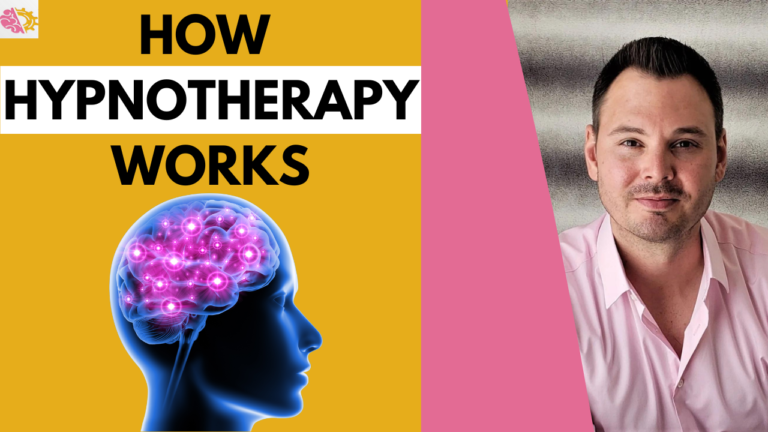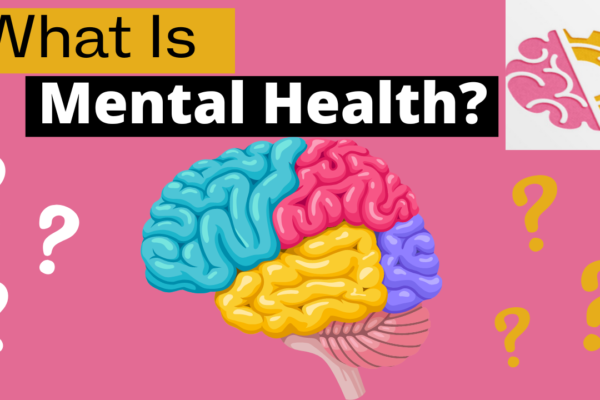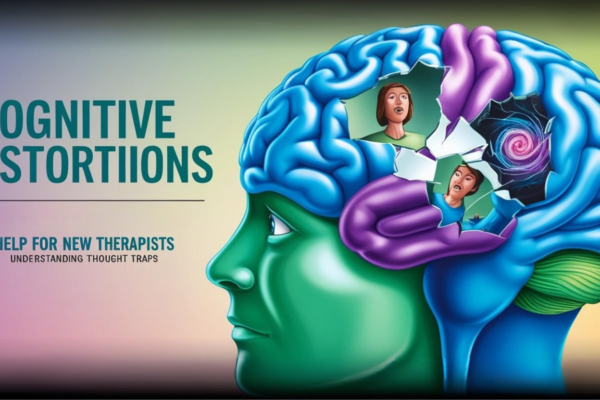As a therapist, have you ever been asked about hypnotherapy, and find yourself unable to provide any meaningful feedback to clients? Me too! Well, at least that was the case until now. Because in this episode of the Mental Health Toolbox, I am interviewing Mike Oglesbee, Clinical Hypnotherapist, Author and NLP Practitioner, who educates us the science behind and clinical practice of hypnotherapy, and puts to bed the misconceptions behind it.
*Some of the links found here are affiliate links: As an Associate I earn from qualifying purchases by way of commission at no additional cost to you. See full disclaimer here:
Table of Contents
BIO: Mike Oglesbee, Clinical Hypnotherapist, Author and NLP Practitioner

Meet Mike Oglesbee, an acclaimed author, and coach who has been helping people overcome their fears and lead more effective lives since 2011. He founded Maximized Mind, LLC. in Myrtle Beach, SC, drawing from his diverse and unique background to create a system that addresses the root causes of personal and professional struggles. Mike believes that knowledge is power and that we can empower ourselves to make positive life changes by understanding ourselves better. As a coach, mentor, advisor, friend, and partner, Mike devotes much of his time to helping people step into their power and reach their full potential.
Mike holds a Bachelor of Science in Psychology from the University of Phoenix and an MBA from Trident University International. He has received extensive training and certification as a Clinical Hypnotherapist, Neuro-Linguistic Programming (NLP) Practitioner, and Life Coach. He has been featured on ABC television shows and numerous radio programs, including international radio, and has been recognized for his success stories in various magazines and publications.
https://mikeoglesbee.com/
Learn More About Mike Oglesbee, Clinical Hypnotherapist, Author and NLP Practitioner
CONTACT AND SOCIALS:
- Website: https://mikeoglesbee.com/
- Website: https://maximizedmind.com/
- Podcast: https://maximizedmind.com/podcast
- Instagram: https://www.instagram.com/authormikeoglesbee/
- Twitter: https://twitter.com/MikeOglesbee123
- Facebook: https://www.facebook.com/hypnotherapymyrtlebeach
- LIn: https://www.linkedin.com/in/mikeoglesbee
- YouTube: https://www.youtube.com/channel/UCVxo1ZEN14WCxY1hVhhov2g
- Book: FIGHT BACK

Watch The Interview
If you liked this episode, be sure to check out my full playlist of interviews here: https://youtube.com/playlist?list=PLnPL9gahfhWatKmy2YSyU0jt20h_jrj3H
Listen To The Interview
A Brief overview of hypnotherapy
Hypnotherapy is a type of therapeutic technique that uses the power of positive suggestion to bring about subconscious change to our thoughts, feelings, and behavior. The process itself aims to alter our state of consciousness in a way that relaxes the conscious part of the mind while simultaneously stimulating and focusing the subconscious part. This heightened state of awareness – reached using skilled relaxation techniques – allows the therapist to then make appropriate suggestions.
In essence, hypnotherapy is a collaborative process where the client is an active participant in their own treatment, working together with the therapist to uncover and explore past traumas and memories, identify negative beliefs, and replace them with healthier ones. It can be utilized as a tool to treat a wide range of conditions or unwanted behavior, such as anxiety, phobias, substance abuse, and unhealthy eating habits, among others.
The importance and relevance of understanding hypnotherapy
Understanding hypnotherapy is crucial for several reasons. Firstly, it demystifies the process, dispelling common myths and misconceptions that often surround this form of therapy. This can help individuals who might benefit from hypnotherapy to approach it without fear or skepticism. Secondly, understanding hypnotherapy can empower individuals to take an active role in their own healing and personal growth. By grasping how hypnotherapy works, they can better cooperate with the therapist and enhance the effectiveness of the treatment. Lastly, understanding hypnotherapy can widen our perspective of mental health solutions beyond traditional methods, encouraging a more holistic and individual-centered approach to wellbeing.
What is Hypnotherapy?
Definition of hypnotherapy:
Hypnotherapy is a form of psychotherapy that employs guided relaxation, intense concentration, and focused attention to achieve a heightened state of awareness, often referred to as a trance. The person’s attention is so focused while in this state that anything going on around them is temporarily blocked out or ignored. In this naturally occurring state, a person may focus their attention — with the help of a trained therapist — on specific thoughts or tasks.
Brief history of hypnotherapy:
The history of hypnotherapy dates back to ancient civilizations, with the earliest references found in Egypt and Greece. However, the term “hypnosis” was coined only in the 1880s in France.
In the late 18th century, hypnotherapy began to move from mysticism towards a more scientific approach. A significant figure during this time was Franz Mesmer, a German physician who used hypnosis for treatment of patients in Vienna. His method, called mesmerism, is considered the precursor to modern hypnotherapy.
The term hypnosis was coined by a Frenchman named Etienne Felix d’Henin de Cuvillers after the death of James Braid, who is often regarded as the “Father of Hypnotism”. Braid’s work helped establish hypnosis as a legitimate therapeutic technique.
Throughout the 20th century, hypnotherapy continued to evolve, with psychologists and researchers further investigating its potential. Today, it’s widely recognized as an effective method for treating a variety of conditions, from psychological disorders to physical pain.
Common misconceptions about hypnotherapy:
There are several common misconceptions about hypnotherapy that often deter people from considering it as a viable therapeutic option. One of the most prevalent is the belief that hypnosis involves the therapist controlling the client’s mind, which is not true. In hypnotherapy, the client is always in control and can choose to come out of the hypnotic state at any time. Another misconception is that hypnotherapy can make people do things against their will or ethical beliefs. In reality, hypnosis cannot make you do anything you don’t want to do. It’s a tool to help people access their subconscious mind and make positive changes, not a form of mind control. Additionally, some people believe that they can get “stuck” in a hypnotic state, but this is also false. Hypnosis is a natural state of focused attention and you can easily return to your normal state of consciousness.
The Science Behind Hypnotherapy
How hypnotherapy works on a scientific level:
Scientifically, hypnotherapy works by altering our state of consciousness in a way that relaxes the conscious control and awakens subconscious thoughts. During hypnosis, the body relaxes and thoughts become more focused. Like other relaxation techniques, hypnosis lowers blood pressure and heart rate, and changes certain types of brain wave activity. In this relaxed state, individuals will feel very at ease physically yet fully awake mentally. In this state of heightened awareness, the patient’s subconscious can be accessed, making it open to suggestions and ready for change while the conscious mind takes a back seat. It is here that the hypnotherapist can suggest ideas, concepts and lifestyle adaptations to the patient, which remain with them after the session is over, influencing their subsequent thoughts and behaviors. This is the key reason why hypnotherapy can be so effective in modifying behavior and habits and healing emotional issues.
Hypnotherapy and the mind-body connection:
Hypnotherapy and the mind-body connection are deeply intertwined. Hypnotherapy utilizes the power of the mind to influence physical health and wellbeing. When we enter a state of hypnosis, our minds become more receptive to positive suggestions and new ideas. This heightened state of awareness allows us to tap into our subconscious mind where our deepest beliefs, emotions, and physiological responses reside.
In this state, hypnotherapists can guide us to change negative thought patterns or behaviors and replace them with positive ones. These changes in the mind can lead to tangible changes in the body. For instance, hypnotherapy can help manage pain, reduce stress, improve sleep, and even boost immunity. This is because our bodies respond to what our minds perceive, making the mind-body connection a powerful tool in promoting overall health and wellness.
It’s important to note that the effectiveness of hypnotherapy relies heavily on the individual’s openness to the process and their willingness to participate actively. In other words, the mind-body connection in hypnotherapy is a two-way street: the mind influences the body, but the individual’s conscious commitment also plays a crucial role in the success of the therapy.
Evidence-based research supporting hypnotherapy:
Several pieces of research support the effectiveness of hypnotherapy. A book titled “Evidence-Based Practice in Clinical Hypnosis” details how hypnosis can help with various issues, including anxiety and depression. Similarly, a study by the Scientific Advisory Committee on Psychotherapy concluded that hypnotherapy is a scientifically valid technique.
Moreover, there’s growing evidence supporting the use of hypnosis for relief from discomfort associated with many diagnostic and invasive procedures. Another important finding suggests that hypnotherapy can provide immediate and long-term relief from symptoms such as re-experiencing traumatic events.
Research on hypnosis for treating pain, Irritable Bowel Syndrome (IBS), and Post-Traumatic Stress Disorder (PTSD) symptoms has also yielded strong results. These studies highlight the potential of hypnotherapy as a complementary or alternative treatment option for various physical and psychological conditions.
However, it’s important to note that while hypnotherapy has been found to be effective in many cases, individual responses can vary, and it should be undertaken with the guidance of a certified professional.

The Process of Hypnotherapy
Step-by-step breakdown of a typical hypnotherapy session
A typical hypnotherapy session can be broken down into several key steps:
- Pre-talk: This is the initial discussion where the therapist explains what hypnosis is, how it works, and what the client can expect. The therapist also uses this time to gather information about the client’s issue, goals, and medical history.
- Induction: The therapist guides the client into a state of deep relaxation or trance. This could involve the therapist slowly counting down from 10 to 1, or asking the client to focus on a fixed point in the room.
- Deepening: Once the client is in a relaxed state, the therapist uses techniques to help them become even more relaxed and receptive. This could involve visualizing calming scenes or going down a set of stairs.
- Therapeutic intervention: In this stage, the therapist introduces suggestions or affirmations to the client. These are tailored to the client’s specific goals, such as quitting smoking or managing stress. The client’s subconscious mind is more open to these suggestions in the hypnotic state.
- Emergence: The therapist gradually brings the client out of the hypnotic state. They may count forwards or simply suggest that the client will return to their normal conscious state feeling refreshed and alert.
- Post-session discussion: After the hypnosis, the therapist and client discuss the experience and any insights or feelings that arose. The therapist may also provide guidance on self-hypnosis techniques that the client can use at home.
Remember, the structure and flow of a hypnotherapy session can vary depending on the therapist’s style and the client’s needs. Some sessions may involve additional elements like cognitive behavioral therapy or mindfulness.
Techniques used in hypnotherapy:
Hypnotherapy employs a variety of techniques to help individuals achieve their goals or overcome certain issues. Here are some common techniques:
- Hypnotic Inductions: This is the process of guiding a client into a hypnotic state, often done through relaxation techniques, visualization, or focused attention.
- Relaxation Techniques: These methods are used to help clients reach a state of deep physical and mental relaxation, which is conducive to the hypnotic state.
- Visualization: In this technique, the therapist guides the client to visualize specific scenarios or images. This technique can help clients change their perceptions or attitudes towards certain situations.
- Suggestion Therapy: Once the client is in a relaxed, receptive state, the therapist introduces suggestions that align with the client’s goals. These could be related to behavior change, stress relief, pain management, etc.
- Age Regression: This technique involves guiding the client back to an earlier time in their life to explore events or experiences that may be influencing their current situation.
- Neuro-Linguistic Programming (NLP): This approach involves using language patterns and messaging to effect changes in a client’s thoughts and behaviors.
- Self-Hypnosis: Therapists may teach clients self-hypnosis techniques so they can continue their therapy at home. This often involves guided meditations or affirmations.
- Anchoring: This technique involves associating a physical touch or gesture with a particular emotion or state of mind. When the client replicates this touch or gesture, they can quickly access the associated state of mind.
Remember, the techniques used can vary depending on the therapist’s approach and the client’s individual needs and goals.
Role of the hypnotherapist and the client:
In a typical hypnosis session, both the hypnotherapist and the client have distinct roles and responsibilities.
Hypnotherapist’s Role: The hypnotherapist’s primary role is to facilitate the session and guide the client into a state of hypnosis. They are responsible for creating a safe, comfortable environment conducive to relaxation and openness. Before starting the session, they discuss the client’s goals, explain the process of hypnosis, and address any concerns or misconceptions.
During the session, the hypnotherapist uses various techniques like relaxation exercises, guided imagery, or specific language patterns to help the client enter a hypnotic state. Once in this state, the hypnotherapist introduces therapeutic suggestions tailored to the client’s goals. After the intervention, the therapist gradually brings the client back to their normal conscious state.
Client’s Role: The client’s role is to actively participate in the process. This includes being open and honest about their issues, expectations, and experiences. The client needs to be willing to enter a hypnotic state and accept the therapeutic suggestions made by the hypnotherapist. Even though the hypnotherapist guides the process, the client always maintains control and can choose to end the session at any point.
Trust and Rapport: Building trust and rapport between the hypnotherapist and the client is crucial. This is often accomplished through clear communication, empathy, and respect. The hypnotherapist should listen attentively, maintain confidentiality, and ensure the client feels understood and comfortable.
Techniques and Challenges: The type of hypnotherapy technique used depends on the client’s needs and the hypnotherapist’s approach. Common techniques include suggestion therapy, self-hypnosis, visualization, and relaxation techniques.
Challenges may arise during the session, such as the client finding it difficult to relax or resist suggestions. However, an experienced hypnotherapist can usually navigate these issues by altering their approach or using different techniques.
Overall, successful hypnotherapy requires collaboration between the hypnotherapist and the client. Both parties need to play their part effectively for the process to work.
Benefits and Applications of Hypnotherapy
Overview of the potential benefits of hypnotherapy:
Hypnotherapy has been recognized for its potential benefits in various areas of health and wellness. Here are some key areas where it can be particularly effective:
- Pain Management: Hypnotherapy can help individuals manage both acute and chronic pain. It can be used as a complementary treatment for conditions like arthritis, fibromyalgia, or even for post-surgical recovery.
- Stress and Anxiety Relief: By promoting deep relaxation and positive thinking, hypnotherapy can help reduce stress and anxiety levels. It can also help individuals develop better coping mechanisms for stressful situations.
- Smoking Cessation and Substance Abuse: Hypnotherapy can aid in breaking harmful habits like smoking or substance abuse. Through suggestion therapy, individuals can change their perceptions and attitudes towards these substances.
- Sleep Improvement: Hypnotherapy can help address sleep disorders like insomnia by promoting relaxation and changing negative thought patterns that may interfere with sleep.
- Weight Management: Hypnotherapy can support weight loss efforts by helping individuals control their eating habits and maintain a positive attitude towards exercise and healthy food.
- Self-Esteem and Confidence: Through positive affirmations and suggestions, hypnotherapy can help improve self-esteem and boost confidence.
- Phobias and Fears: Hypnotherapy can help individuals manage and overcome specific phobias or fears. By revisiting the triggering event in a safe environment, individuals can learn to detach fear from the experience.
- Mental Health Support: Hypnotherapy can complement traditional psychotherapy by helping individuals explore painful thoughts, feelings, or memories they might have hidden from their conscious minds.
It’s important to note that while hypnotherapy can offer these potential benefits, its effectiveness varies from person to person. It’s also not meant to replace conventional medical treatment but rather to complement it. Always consult with a healthcare professional before starting any new treatment approach.
Finding a Hypnotherapist
Tips on finding a qualified and reputable hypnotherapist:
Finding a qualified and reputable hypnotherapist is crucial for a successful hypnotherapy experience. Here are some tips to help you in your search:
- Check Qualifications: Ensure the hypnotherapist has the necessary training and qualifications. They should have a certification from a recognized hypnotherapy institution or association.
- Look for Experience: Find out how many years of experience the hypnotherapist has and if they specialize in the issue you’re seeking help with.
- Ask for References: A reputable hypnotherapist should be able to provide references from past clients or colleagues.
- Verify Professional Membership: Many professional hypnotherapists are members of recognized professional bodies like the National Board for Certified Clinical Hypnotherapists. Membership in such organizations shows a commitment to professional standards and ongoing learning.
- Consider Compatibility: You should feel comfortable with your hypnotherapist. Consider scheduling an initial consultation to see if you feel at ease discussing your issues and goals with them.
- Inquire about Their Approach: Ask about the techniques they use and how they tailor their approach to meet individual client needs.
- Evaluate Communication: Good communication is key in any therapeutic relationship. The hypnotherapist should be able to explain the process clearly and answer all your questions satisfactorily.
- Assess Transparency: A good hypnotherapist should provide clear information about fees, cancellation policies, and what you can expect in each session.
- Self-Hypnosis Training: Some hypnotherapists teach self-hypnosis techniques that you can use outside of your sessions. This can be an added advantage.
- Trust Your Instincts: Ultimately, trust your instincts. If something doesn’t feel right, continue your search until you find a hypnotherapist who feels like a good fit for you.
Questions to ask a potential hypnotherapist:
When considering a potential hypnotherapist, it’s crucial to ask questions to ensure they are a good fit for your needs. Here are some important questions you might want to ask:
- What is your educational background and training in hypnotherapy? You’ll want to know if they have professional training from a reputable institution.
- Are you certified and by which organization? Certification from a recognized body ensures they adhere to certain professional standards.
- How long have you been practicing hypnotherapy? Experience can often enhance the effectiveness of therapy.
- Do you have any specialties or areas of focus? If you’re seeking help for a specific issue, it’s beneficial to work with a hypnotherapist who specializes in that area.
- What is your approach to hypnotherapy? Understanding their approach will give you an idea of what to expect during sessions.
- Can you provide any success stories or references? Hearing about the experiences of previous clients can be insightful.
- What is the structure of a typical session and how long does it last? This helps set expectations about the process and time commitment involved.
- Do you provide instructions or training for self-hypnosis? Self-hypnosis can be a valuable tool to enhance the benefits of therapy.
- How many sessions do you typically recommend? This gives you an idea of the potential duration of therapy.
- What are your fees and payment policies? It’s important to understand the financial commitment before starting therapy.
Remember, the goal is to find a hypnotherapist with whom you feel comfortable and confident. Don’t hesitate to ask any other questions that can help you make an informed decision.
Conclusion
Recap of key points covered in the article:
- Roles in Hypnotherapy: The hypnotherapist guides the client into a state of hypnosis and introduces therapeutic suggestions. The client’s role is to actively participate, being open and honest about their experiences and goals.
- Trust and Rapport: Building trust and rapport is crucial for a successful hypnotherapy session. This can be achieved through clear communication, empathy, and respect.
- Hypnotherapy Techniques and Challenges: The type of technique used depends on the client’s needs and the therapist’s approach. Challenges may arise, like difficulty relaxing or resistance to suggestions, but these can usually be addressed by adjusting the approach.
- Benefits of Hypnotherapy: Hypnotherapy can offer benefits in various areas like pain management, stress relief, breaking harmful habits, improving sleep, weight management, boosting self-esteem, and overcoming phobias or fears.
- Finding a Hypnotherapist: When looking for a hypnotherapist, consider qualifications, experience, references, professional membership, compatibility, communication style, transparency, and whether they teach self-hypnosis.
- Questions for Potential Hypnotherapists: Important questions include asking about their background and training, certification, specialties, success stories, structure of sessions, and fees.
Remember, hypnotherapy is a collaborative process and its success largely depends on the compatibility between the therapist and the client, as well as the client’s openness to the process.
Help The MHT Mission To Raise Mental Health Awareness
I hope you found this article enlightening and helpful. If you did, please consider sharing it with your friends, family, or anyone else who might benefit from understanding more about hypnotherapy. Your sharing helps us reach more people who could use this information.
And if you have personally experienced hypnotherapy or have any thoughts on the topic, we’d love to hear from you! Please leave a comment below sharing your insights or experiences. Your input could be invaluable to others considering this form of therapy.
Finally, if you want to stay informed and continue learning, don’t forget to subscribe to our newsletter. You’ll receive more articles like this one, filled with psycho-education and tips to help you navigate your mental health journey. Subscribe today and join our community of learners and supporters. Thank you for reading!
*Some of the links are affiliate links: As an Associate I earn from qualifying purchases by way of commission at no additional cost to you.
Want to learn more? Check out my top picks for books on self-improvement and recovery HERE!
The Mental Health Toolbox: Resources and Support for Therapists Seeking Growth & Impact.
Mission Statement: To equip therapists with the tools, knowledge, and strategies they need to enhance their practice, boost their income, and ultimately, improve the lives of their clients. We achieve this through accessible, high-quality content, practical resources, and a supportive community.
NEED CRISIS HELP? If you need immediate crisis help with your depression, you can call the National Suicide Prevention Lifeline at 1-800-273-8255 or text “START” to 741-741
OUTSIDE THE UNITED STATES: See International Suicide Hotlines
WHERE TO FIND MENTAL HEALTH HELP:
-NAMI Referral Helpline: 1-800-950-6264
-California’s Statewide Mental Health Helpline: 1-855-845-7415
ASK: If you have a question you’d like me to answer here on the blog (even if you think it’s a silly one!), please use the form on the CONTACT ME page, or the comment section below. I would be happy to take a poke at it and provide a long form answer when appropriate.
SHARE: Also, be sure to share it with a friend, as there is still a lot of work to be done in raising mental health awareness.
SUBSCRIBE to get your FREE MOOD TRACKING TOOL and quick Mental Health Hacks in addition to this newsletter. Sign-up with the form below.
[mc4wp_form id=”142″]
admin
Latest posts by admin (see all)
- How to Build a Referral Engine Without the “Hustle”: - January 12, 2026
- ADHD Tips for Therapists | with Dr. Jennifer Dall - May 28, 2025
- Why Therapy Fails Men (And How to Fix It) – Insights with Marc Azoulay - May 11, 2025












